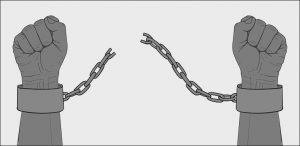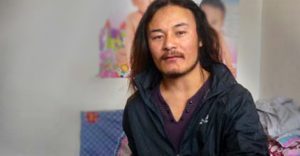It is now almost 22 years since Gedhun Choekyi Nyima’s abduction, which took place on 17 May 1995. This year, on 25 April, Gedhun turned 27. The Chinese government continue to deny responsibility for his abduction, but in 1996 did acknowledge that Gedhun and his family were being held in a secret location.
In March 2010, the Governor of the Tibetan Autonomous Region, Pema Trinley, told a press conference in Beijing that Gedhun and his family “are now living a very good life in Tibet”. Pema Trinley added that, “He and his family are reluctant to be disturbed; they want to live an ordinary life.”
Despite repeated requests from international governments, rights groups and the UN, the Chinese government has yet to provide any evidence whatsoever that Gedhun is safe; instead it continues to give a stonewall response that he is not imprisoned, but is a private citizen who is leading a normal life and attending school.
Tibet Society has serious concerns for the well-being of the Panchen Lama and calls upon the Chinese government to release Gedhun Choekyi Nyima and his family from any form of detention and allow full access to UN representatives to assess his and his family’s well-being.
The Panchen Lama is a hugely important spiritual figure in Tibetan Buddhism, second in significance in the Gelukpa school only to the Dalai Lama.
When the 10th Panchen Lama died in 1989 the search began to find his reincarnation. The search was led by Chadrel Rinpoche of Tashilunpo Monastery in Tibet, who provided a list of candidates to His Holiness the Dalai Lama. On 14 May 1995 Gedhun Choekyi Nyima was chosen from that list. Three days later he and his family went missing. In May 1996, the Chinese authorities admitted to the UN Committee for the Rights of the Child that Gedhun and his family were being held in a secret location.
In 2005, the UN Special Rapporteur on Freedom of Religion or Belief sent a communication to the Chinese government expressing concern about Gedhun Choekyi Nyima’s case and the “grave interference with the freedom of belief of the Tibetan Buddhists who have the right to determine their clergy in accordance with their own rites and who have been deprived of their religious leader”.
China’s Panchen Lama
The Chinese government, recognising the political significance of the Panchen Lama, wished to have a replacement of their own choosing to sway Tibetan society and counter the influence of the Dalai Lama. Six months after Gedhun’s abduction the Chinese authorities selected Gyaltsen Norbu, a young Tibetan boy to become the 11th Panchen Lama.
 Norbu’s parents were Communist Party members and he was raised and educated in Beijing. Information from inside Tibet suggests that Norbu is not revered by Tibetans as the authentic Panchen Lama, and that Buddhist monasteries only receive him under duress from the Chinese authorities. Apparently, he is referred to as the Zuma Lama, which translates as ‘fake lama’.
Norbu’s parents were Communist Party members and he was raised and educated in Beijing. Information from inside Tibet suggests that Norbu is not revered by Tibetans as the authentic Panchen Lama, and that Buddhist monasteries only receive him under duress from the Chinese authorities. Apparently, he is referred to as the Zuma Lama, which translates as ‘fake lama’.
Still living in Beijing, Gyaltsen Norbu has made an increasing number of public appearances and statements in recent years. In March 2010, at the age of 20, Gyaltsen Norbu was appointed as a national committee member of the Chinese People’s Political Consultative Conference (CPPCC), China’s top political advisory body. On his appointment, Xinhua news agency quoted Norbu saying that he promised to “uphold the leadership of the Communist Party of China” and “adhere to socialism, safeguard national unification, strengthen ethnic unity and expand Buddhist exchanges”.
The Panchen Lama is also charged with the task of recognising the Dalai Lama’s reincarnation, and it is felt that the Chinese leadership will use Gyaltsen Norbu to select a candidate who they will exercise considerable control over. This would have serious implications for Tibet’s political future. His Holiness the Dalai Lama has stated that he will be reincarnated in exile, out of the reach of the Chinese government. It is expected that Beijing will produce their own Dalai Lama, just as they have with the Panchen Lama, and that the child in question will live a life as a political pawn.



